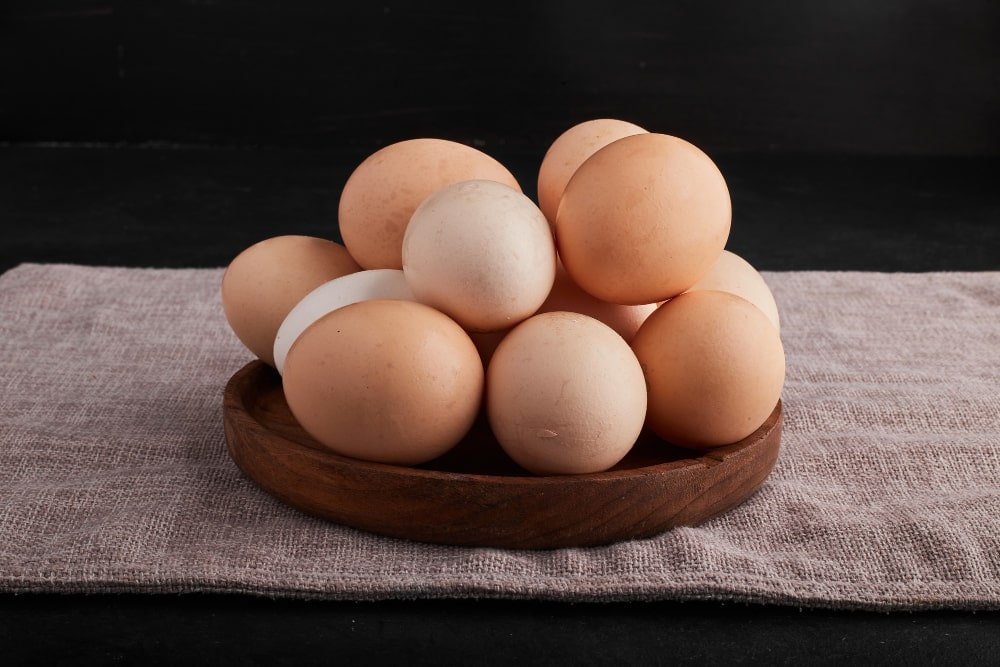If you’re looking to boost your nutrition and reduce your risk of disease, you should focus on a diet that includes the right combination of fruits and vegetables.
Vegetables contain a variety of healthful vitamins, minerals and dietary fiber. Some are especially beneficial to men’s health.
1. Carrots
Carrots are a low-calorie, nutrient-pack food that’s a great choice for any diet. The orange-color root vegetable is full of beta-carotene, Vitamins C and K, potassium, dietary fiber and antioxidants, all of which help keep your body healthy.
While carrots are popular as a snack and cooking vegetable, they can also be add to salads and serve raw for a delicious nutrient boost. They’re an excellent source of vitamin A and lutein, an antioxidant that helps protect your eyes from age-relate eye diseases like cataracts.
They’re also rich in fiber, which can increase satiety and promote weight loss. And they’re low on the glycemic index, which means that they won’t spike your blood sugar and make you feel hungry.
The high levels of potassium in carrots can also lower your blood pressure, which may reduce your risk of heart disease. Additionally, they’re a good source of magnesium, which can improve your heart’s health by reducing inflammation. In addition, they’re a rich source of anthocyanins, which are antioxidants that fight free radicals and can also boost your immune system.
2. Broccoli
Broccoli is a powerhouse of essential nutrients, including antioxidants, Vitamin C, Vitamin K and folate. It’s a powerful immune system booster and detoxifier that reduces inflammation, prevents heart disease and promotes bone health.
For men, broccoli is especially useful because バイアグラジェネリック can boost testosterone levels and help keep your libido strong as you get older. It’s also rich in chromium, which helps regulate insulin and control diabetes (especially for men who are pre-diabetic).
Additionally, broccoli is a good source of calcium and sulforaphane, a phytochemical that has anticancer properties. In addition, it contains vitamins A, B6, C, and K, as well as iron, potassium, magnesium, and zinc.
It’s also a great source of fiber, which aids in digestion and prevents constipation. In addition, it’s low in calories, with only 35 calories per cup.
3. Orange Vegetables
Orange vegetables are a great way to add color to your meals, and they also contain lots of healthy nutrients. They can help to lower your risk of developing heart disease and certain cancers, among other benefits.
Many of these vegetables also have high levels of potassium, which can help to maintain normal blood pressure. This is a nutrient that is often lacking in the American diet, and it’s important to include this vegetable group in your daily meals.
Another orange veggie you can incorporate into your diet is butternut squash. This winter squash is a great source of Vitamin A, and it can help to boost your immune system and reduce your chances of contracting certain diseases.
This orange-color heirloom variety is a great choice for your garden, as it’s easy to grow and requires minimal water. It’s a tasty addition to any meal, from soups to savory dishes to desserts.
If you’re looking for a more subtle, citrusy flavor in your diet, try papaya. It’s also know to improve digestion and immunity, and it’s a good source of fiber.
4. Spinach
Spinach is a leafy vegetable that has been around for thousands of years. It is a great choice for those who want to stay healthy and live longer.
It is low in calories and contains many nutrients that are beneficial for your health. It is an excellent source of fiber, vitamins K and C, magnesium, potassium and calcium.
In addition, it is a good source of iron which helps to stimulate the healthy blood flow in your system. It also promotes the growth of new cells and aids in the process of cell regeneration.
As an antioxidant, spinach is an important dietary resource, providing high amounts of vitamin C and carotenoids like lutein and zeaxanthin. These vitamins help prevent long-term eye conditions such as cataracts and age-relate macular degeneration.
It is also a good source of vitamin A, which is require for the growth of skin and hair. In addition, it is rich in iron and zinc which contributes to a strong immune system. Moreover, it is also a good source of calcium which is vital for bone and tooth health.
5. Collard Greens
Collard greens, also know as kale, belong to the cabbage family and are pack with vitamins, minerals, and fiber. They’re a great choice for anyone trying to improve their health and boost their energy levels, as well as reduce the risk of several diseases.
Genericmeds Treatment help lower cholesterol, as they contain soluble fibre that binds with unhealthy LDL (low-density lipoprotein) cholesterol in the body and excretes it from the digestive tract. This can decrease your total cholesterol and LDL levels, explains Charmaine Jones, a certifie dietitian and author of Cooking for Health.
In addition to lowering cholesterol, collard greens also improve heart health and prevent fatty buildup in the arteries. This happens because lutein, which is find in collard greens, may prevent blood clots and improve circulation.
In fact, researchers say that the higher dietary intake of lutein may decrease the risk of prostate cancer. It’s thought that lutein may reduce the number of cancer cells in the prostate by blocking the action of a natural enzyme call sterol esters.
6. Asparagus
Asparagus is rich in a number of nutrients, including fiber, vitamins C and K, folate, and potassium. It also contains chromium, a mineral that helps regulate blood sugar levels.
It is also a good source of thiamine, riboflavin, and pantothenic acid, which are essential for your brain and nerves. Asparagus is high in antioxidants, which can help prevent free radical damage.
Research has also show that eating asparagus can help lower blood pressure, and it may reduce the risk of heart disease by improving insulin release and beta-cell function. It is also a good source of glutathione, which may slow the aging process and prevent cognitive decline in older adults.
It is also a good source of inulin, a prebiotic fiber that promotes a healthy intestinal microbiome. Inulin is also thought to improve digestion, and a diet rich in inulin can also lower the risk of colorectal cancer.
7. Beets
Beets are one of the healthiest vegetables for men, with a long list of benefits. They’re rich in vitamins, minerals, and antioxidants, and they may lower blood pressure and promote a healthy heart.
They’re also a good source of fiber, which helps you feel fuller longer and stay hydrated. A balance diet of fiber can also help you control your blood sugar levels, maintain a healthy weight, and reduce your risk of colon cancer, heart disease, and inflammatory bowel disease (IBS).
Nitric oxide is another key nutrient find in beets. This molecule dilates your blood vessels, which can protect against high blood pressure.
The betalains that give beets their vibrant red, purple and yellow colors also have anti-inflammatory properties. This can help you manage joint pain, relieve inflammation throughout your body and improve your skin’s elasticity.
You can add beets to your meals in a variety of ways, from juices to smoothies and salads. They’re also delicious roast or pickled. Just make sure you get organic beets, as they’re less likely to contain pesticides(palmerpest bed bug control miami) and other chemicals.
8. Bell Peppers
Bell peppers are a type of vegetable that can be cook or eaten raw. They are available in different colors, including green, yellow, orange and red. They are an excellent source of vitamins A, B6, C and E, as well as folate, fiber and antioxidants.
Bell peppers can be a great addition to any meal. They have a mild, sweet flavor and are easy to prepare.
They are also low in calories and contain many nutrients that are beneficial for men. They are high in vitamin C, which helps strengthen the immune system. They also have a lot of beta carotene, which can help protect the eyes and improve memory.
These vegetables are also very low in sodium and cholesterol, which makes them a good choice for a healthy diet. They are also a good source of potassium, which can help control blood pressure and lower the risk of heart disease.
Bell peppers are a very popular vegetable that is often available in the grocery store. It is important to choose quality bell peppers that are firm, heavy for their size and have a smooth skin. Avoid buying peppers with damage skin, which could contain harmful microorganisms.
Also, read about the dispensary washington dc



